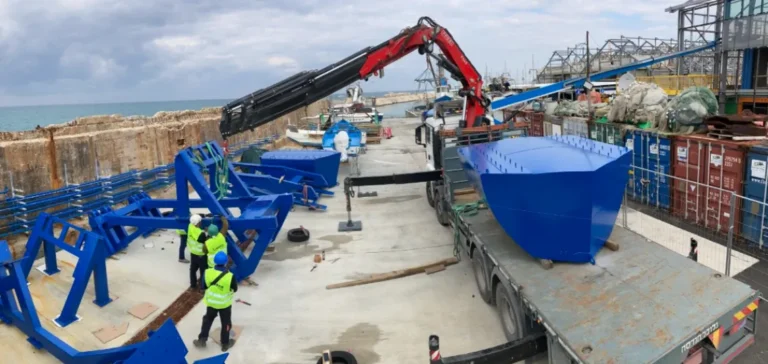Eco Wave Power Global AB is now part of the transnational Atlantic Wave Energy Sustainable Deployment Initiative (AWESDI), supported by European funding amounting to €2.45mn from the Interreg Atlantic Area programme. This project specifically aims to promote energy efficiency and reduce greenhouse gas emissions through large-scale deployment of wave energy technological solutions. The initiative is coordinated by Centro de Investigación Mariña (CIM) of the University of Vigo in Spain, and involves several academic institutions and companies from Portugal, Spain, France and Ireland. Eco Wave Power will bring precise technical, operational and industrial contributions to the project.
Consortium composition and objectives
In addition to Eco Wave Power, the AWESDI consortium includes the participation of several European entities, notably Universidade do Porto (Portugal), Université Le Havre Normandie (France), University College Cork (Ireland), Marine Institute (Ireland), GEPS Techno (France), Groupe Legendre (France), Fundamar (Spain), Pôle Mer Bretagne Atlantique (France), Atlantic Technological University (Ireland), and Xunta de Galicia (Spain). Each member will provide specific expertise in marine energy, engineering, environmental studies, and regulatory planning.
In this context, Eco Wave Power will notably participate in feasibility studies for future installation sites in Portugal. The company will also provide operational data from its existing installations, thereby supporting the technical and regulatory validation of systems planned by the consortium. Furthermore, it will contribute to developing a sector-specific roadmap focused on wave energy technologies, intended to guide future commercial and industrial installations.
Industrial implications and economic prospects
According to Inna Braverman, founder and CEO of Eco Wave Power, “AWESDI represents a significant opportunity to concretely link academic research, policymakers, and the industrial sector, accelerating the effective commercialisation of wave energy technologies along the Atlantic coast”. The project will primarily fund detailed technical assessments, as well as environmental analyses in collaboration with leading port and academic institutions.
This new funding aligns with the company’s ongoing projects in Portugal, where Eco Wave Power is currently preparing to commission its first megawatt-scale (MW) installation. The company previously benefited from public funding through Horizon 2020, Innovate UK, the Israeli Ministry of Energy, and the European Regional Development Fund (ERDF).






















